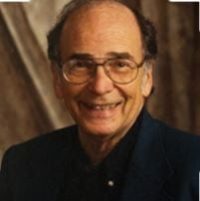
August 4, 1929 – August 19, 2017
Dr. Deane. L. Shaffer, 88, of Hartsville, SC, died Friday, Saturday, Aug. 19, 2017, in McLeod Hospice House, Florence, SC. Shaffer was professor emeritus of religion at Coker University, where he taught for 51 years, longer than anyone else in the school’s history. He also was the long-time dean of the Liberal Arts department at Coker.
“A gentle, and courtly man, Shaffer pushed his students to apply themselves and consider things that they were not always comfortable with,” according to an article in “Forty Teachers, Forty Paths to Coker University,” a short book about some of the school’s best professors.
“Over time, assisted by his assiduous preparation for class, an ability to effectively relate complex ideas, and a truly marvelous speaking voice (which generations of Coker students still refer to it as “The Voice of God”), Shaffer established himself as one of the most respected and beloved teachers ever to work at Coker, twice being selected as Master Professor of the Year,” according to the book that was published in 2015 by Dr. Shawn Lay, a Coker history professor and one of Shaffer’s former colleagues.
Shaffer was born Aug. 4, 1929, in Iowa, a son of Jenny Jewel and George Shaffer. He grew up with his parents and two siblings on a small farm near Windom in southeastern Minnesota. He enjoyed reading and studying as a boy, developing a particularly strong interest in India and the American West. Although his parents were strict Methodist fundamentalists, they allowed Shaffer to watch movies like “The Good Earth” and “Gunga Din,” stimulating his interest in foreign places, and they supported his plans to attend college. He also benefitted from excellent teachers in high school, who provided him with a solid background in history, literature, mathematics, and science.
After graduating as valedictorian of his high school class, Shaffer enrolled at Bethel College, a small but highly respected Baptist school in St. Paul, MN. Majoring in psychology, he took courses with a series of talented professors and immersed himself not only in his major field but in philosophy, theology, sociology, and classical Greek.
Shaffer worked his way through school, unloading crates at a large shipping company and performing seasonal factory work, but remained an exemplary student, graduating from Bethel at the top of his class.
Anticipating a career as a minister, Shaffer entered the doctoral program at the Southern Baptist Theological Seminary in Louisville, KY. The faculty included a number of prominent theologians who were, during the social and political ferment of the 1950s, exploring new ideas and approaches. Under their influence, Shaffer began to move away from the staunch fundamentalism of his youth. As a teaching assistant, he also was introduced to the basics of classroom mechanics and graded “lots of papers.” Looking back at his time in the seminary, Shaffer feels that the faculty provided superb role models — intellectually engaged, hard-working, and generous.
While finishing his Ph.D., Shaffer served as the pastor of a small rural church near Lexington, KY, but the low pay convinced him to explore other career opportunities. In 1961, after learning of a job opening at Coker University, he visited Hartsville and was hired as a professor of religion.
Coker was a small, struggling school at the time, but Shaffer greatly enjoyed working in a liberal arts environment that valued open discussion and academic freedom. He also liked and admired the people he worked with, including such legendary professors as Dr. Elizabeth H. Davidson and Dr. Valleria Grannis. Shaffer earned the respect of his colleagues and often was selected as a faculty spokesman and leader. In particular, he played a prominent role in advocating for more enlightened and progressive attitudes concerning race relations on campus and in the local community.
Soon after his arrival, Shaffer began reshaping the religion program at Coker to better align it with the overall mission of the liberal arts, phasing out courses on religious education and introducing new material on non-Christian faiths. Pedagogically, his primary goal was to broaden his students’ horizons and allow them to examine the beliefs of others in an open, nonjudgmental, and empathetic fashion.
“Dr. Shaffer is a genuine humanitarian, a peace-filled human being and the best lecturer I ever had at Coker. I hated for his class to end each day. He definitely pulled the best out of me,” said one student quoted in “Forty Teachers, Forty Paths….”
Shaffer is survived by a son, Mark Shaffer of Beaufort, SC; a daughter, Lisa Wylie, and son-in-law, Hammond Wylie; a brother, David, sister-in-law, Jody, and nieces Laurie Mech and Cindy Loftsgard; and a niece, Sue Sharpe.
Shaffer was predeceased earlier in 2017 by his beloved daughter-in-law and former star pupil, Susan Shaffer, wife of his son Mark. He also was predeceased by a sister, Norma.
A private memorial service for friends and family will be Sept. 23 at one of his favorite places, Kalmia Gardens in Hartsville. An inclusive memorial celebration of life on the Coker University campus will be announced soon. Brown-Pennington-Atkins Funeral Home is serving the family.
The family suggests that, in lieu of flowers, memorial contributions may be made to the Susan Kelley Shaffer Endowed Scholarship Fund, Coker University, College of Advancement, 300 E. College Ave., Hartsville, SC, 29550. Brown-Pennington-Atkins Funeral Home is serving the family.
